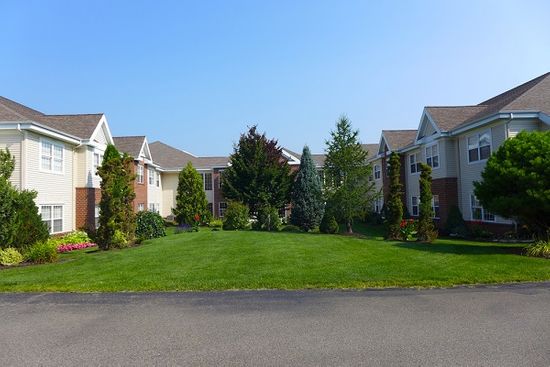We often understand grief as an emotional experience that occurs after loss. However, anticipatory grief refers to a grief reaction that occurs in anticipation of an impending loss. This term, defined by the End of Life Care Consensus Panel, describes the emotional pain and mourning experienced before the actual event of loss.
Most commonly, anticipatory grief is associated with those expecting the death of a loved one, but it can also affect individuals facing their own death, an impending divorce, or potential job loss.
This is a very normal reaction when facing a significant loss, like the death of a loved one. For example, you might grieve for the future moments you won't share together. It's also normal to think about how your life will be after they have passed and how you will cope.
Anticipatory grief differs from grief after death because it involves a complex mix of emotions. For example, people might experience a conflict between mourning the impending loss and hoping that their loved one might survive.
This can create a range of opposing reactions, such as:
Anticipatory grief often occurs when a loss is expected, such as with a terminal illness. In these cases, it allows for a gradual adjustment to the idea of loss, providing time to process emotions and prepare for life without the loved one. This period can include meaningful goodbyes, practical preparations, and developing coping strategies.
Many different people can suffer from anticipatory grief. Though it is mostly associated with the impending loss of a loved one, it can relate to any type of potential upcoming loss.

Caregivers, family or friends of those dying are most often affected. The grief can be heightened by illness, uncertainty, monetary issues and the burden of caregiving.

Those who have a terminal illness, those who are in a warzone, or those who are of a certain age, can also feel grief for events they won't be around for or lost opportunities they will miss.

Someone who is about to lose a job, get divorced or have a scheduled mastectomy may suffer from anticipatory grief, which can result in fear of a big, uncertain change.
There are a number of different emotions an individual will go through, and some elements of the five stages of grief may apply - denial, anger, bargaining, depression and acceptance.
The model is seen to be a little outdated in the 21st century and not necessarily applicable to anticipatory grief. Below are common emotions that people experience when grieving before someone dies:
Feelings of anxiety are synonymous with anticipation, therefore feeling anxiety when anticipating grief is very common and natural. Anxiety is often intertwined with worry and can cause strong feelings in the body.
It's common to have a strong sense of dread in this type of situation. Dread comes from thinking negatively about the future, which is perfectly reasonable when the future looks a little sad or bleak.
Guilt is commonly felt during periods of all types of grief. Sometimes we feel like we could do more or we could've been nicer to the person who has died or is dying while they were fully on their feet.
It's hard not to feel overwhelmed in situations like these. It's easy for things to feel like they're getting on top of us when there's such sadness around us and so much to think about.
When someone is dying or something is inevitably reaching the end, there is little we can do but watch on, and therefore it's common to feel a sense of hopelessness or helplessness.
Fear is very much intertwined with anxiety, but whereas anxiety comes from anticipation, fear is associated with a real impending threat, which is common in anticipatory grief.
With anticipatory grief you can go through a rollercoaster of emotions, sometimes feeling okay and upbeat about the future, and then the next feeling a strong sense of despair and loneliness. Like with any emotion we feel, it's perfectly natural to feel this way, and the worst thing we can do is pretend it doesn't exist or beat ourselves up for feeling a certain way.
While there is no right or wrong way to grieve, there are strategies that can help you navigate this difficult time.
Allow yourself to feel and express your emotions without judgement. Suppressing your feelings can make them more intense and harder to manage. Talk to someone you trust about what you are going through, whether it’s a friend, family member, or mental health professional.
Lean on your support network during this time. Sharing your feelings and experiences with others who care about you can provide comfort and reduce feelings of isolation. Support groups for people experiencing anticipatory grief can also be a valuable resource.
If possible, have open and honest conversations with your loved one. Discuss your feelings, share memories, and express your love and gratitude. These conversations can provide emotional relief and help create meaningful moments together.
Caring for your physical and emotional well-being is crucial during this time. Ensure you are getting enough rest, eating well, and engaging in activities that bring you comfort and relaxation. Don’t hesitate to seek professional help if you are struggling to cope.
Spend quality time with your loved one and create lasting memories. This can involve simple activities such as talking, looking through photo albums, or doing something they enjoy. These moments can bring comfort and a sense of peace.
Preparing for the inevitable can provide a sense of control and reduce anxiety. This might include discussing funeral plans, legal matters, and other practical arrangements. Knowing that these details are taken care of can bring peace of mind.
It's also important to accept help. Allowing others to assist you with daily tasks and caregiving responsibilities can help alleviate some of the burdens and allow you to focus on spending time with your loved one.
If your loved one is nearing the end, being as kind and as considerate to your loved one will not only make things easier for them, but it will make things easier for you too. Try to get an understanding of what they're experiencing, what they're likely to experience, and treatments that may help ease their pain.
In times of our own grief, one of the best things we can do for ourselves is be compassionate. Research conducted by Stony Brook University shows that expressing compassion and helping others has a tremendous effect on our own mental and physical well-being and will of course aid your loved one's suffering too.
If you're struggling or would just like someone to talk to, below are a few helplines that do great work and provide a shoulder to lean on for anyone who needs support:
Samaritans (Call: 116 123) - Free 24/7 support for anyone needing any kind of emotional support
Cruse (Call: 0808 808 1677) - Free helpline supporting those suffering with grief
Veterans UK (Call: 0808 191 4218) - Government-run support organisation providing free support for veterans and their families
Age UK (Call: 0800 678 1602) - The UK's leading charity helping millions of older people with support, companionship and advice
The Silver Line (Call: 0800 470 8090) - Free 24/7 helpline for older people struggling with loneliness, sadness or lowness
There are a number of things you can arrange when anticipating death, whether you're preparing for a loved one's passing or thinking about your own. Funeral planning to take care of the practical aspects can provide peace of mind during this difficult time.
Whether you're considering a hospice for your loved one or you're looking at organising the funeral, it's worthwhile making arrangements as early as possible.
Preparing for a loved one's deathIt's never a nice feeling thinking about your own death, but most of us have plans regarding what will happen to our estate and what will happen at our funeral.
Preparing for your own deathWhether you're planning for yourself or someone else, funeral plans allow you to cement the funeral arrangements at a less stressful time, and cover the costs in monthly instalments.
View our funeral plansBefore someone dies, getting an understanding of what needs to be done and when, can help to ease the stress and confusion that you may face. Here are some articles that will provide some guidance.
Read more about what to do when someone dies or download our free checklist.

It’s the phone call you never want to hear, but receiving news of a loved one’s death in a care home is a very real possibility. Similarly to a death at home, you should always be aware of the steps you need to take in these circumstances and have a plan in place for an expected death in a care home.
Find out more
When someone dies in a hospital, there will be professionals on hand to help you navigate your loss and guide you through what to do next. There are a number of different steps to take when someone dies in a hospital, and these steps differ from when someone dies at home or in a care home.
Find out more
When living with a loved one expected to pass away at home or in their sleep, knowing what to do can be especially difficult without a plan of action in place. We always recommend preparing for the expected death at home as early as possible in order to make the funeral process run as smoothly as possible.
Find out more
It’s an unfortunate reality that when someone dies, there are legal formalities that need to be completed shortly after. While these can feel like the last thing you want to be doing at a time of mourning, they’re a necessary step before you can start making funeral arrangements.
Find out more
The costs involved with paying for a funeral can vary depending on the type of funeral you choose, but the role of a funeral director or funeral provider is to guide you through the process. Knowing a little more about paying for a funeral can help to set your mind at ease about what to expect.
Find out more
Discover how funeral plans work, their key features, and the benefits they offer. A funeral plan can offer peace of mind by covering future funeral costs and sparing your loved ones from financial stress during a difficult time. This guide will help you understand if a funeral plan is right for you.
Find out moreWe offer the highest level of support, but don't just take our word for it. Below are recent reviews from customers who bought a funeral with us.





